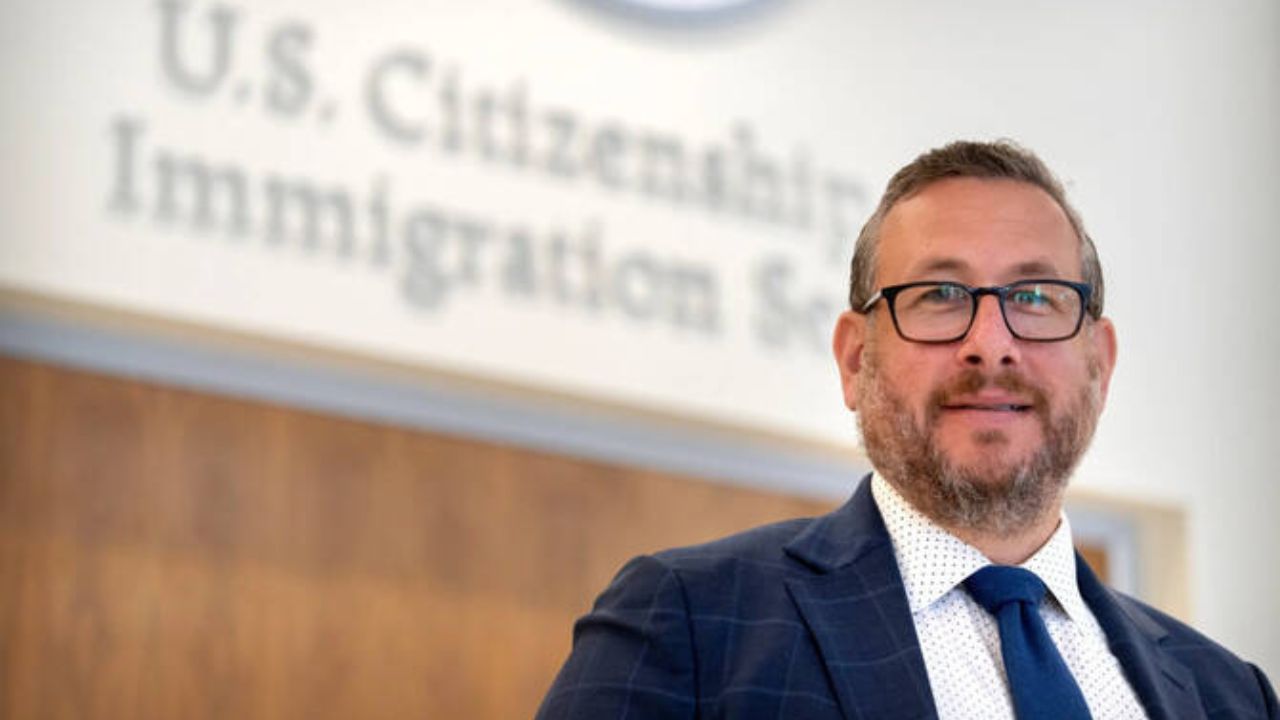
UAE and Yemen Strengthen Legal and Judicial Cooper
UAE and Yemen attorney generals met in Abu Dhabi to strengthen legal ties, enhance public prosecutio

Photo:AP
The announcement by a top U.S. immigration official defending a new rule that targets so-called “anti-American” views in the visa and green card process has opened a heated national debate. This policy sits at the complex intersection of immigration, national security, and freedom of expression. At its core, the rule allows immigration authorities to review applicants’ statements, social media activity, and public records to evaluate whether they hold views considered hostile to the United States.
On the surface, the government’s justification is straightforward: ensuring that those who enter the country respect its values and do not seek to undermine its democratic institutions. But beneath that explanation lie troubling questions about how such values will be defined, who decides what qualifies as “anti-American,” and whether the rule risks silencing immigrant voices.
The Government’s Defense
According to U.S. officials, the rule is not designed to punish political disagreement. Immigration authorities insist that opposing specific policies, criticizing leaders, or challenging government decisions will not automatically harm an applicant’s case. Instead, they argue the rule is about rooting out individuals who openly promote violence against the United States, seek to undermine its democratic foundations, or reject its basic civic principles.
For the government, this is a matter of security and trust. Many Americans feel strongly that citizenship and permanent residency are privileges, not rights, and those who aspire to make the U.S. their home should share at least a baseline respect for the country. Supporters of the policy say it is common sense: why should the U.S. welcome individuals who openly despise it?
The Critics’ Concerns
Yet critics are unconvinced. Civil liberty organizations, immigrant rights advocates, and some lawmakers see the rule as dangerously vague. The term “anti-American” is not a clear legal standard—it can shift depending on political mood and interpretation.
A sharp critic of U.S. foreign policy, for example, could be seen by one official as expressing valid dissent, while another might classify such remarks as disloyalty. Without a strict legal framework, the policy risks becoming a political weapon that bars applicants based not on criminal or terrorist intent but on personal opinion.
The threat to free speech is particularly concerning. Immigrants often come to the United States seeking a society that values expression, assembly, and open criticism of government. If their future in the country depends on silencing those criticisms—online or in public—the spirit of U.S. democracy could suffer. This danger is compounded by the uncertainty of how officials will apply the rule. Will satire, activism, or youthful social media posts be deemed too critical of America? These unanswered questions create unease among immigrant communities.
The Larger Political Context
The timing of the rule adds weight to the controversy. Immigration has long been one of the most polarized issues in American politics. In election years, debates over the border, asylum, and citizenship often dominate. This new policy fits within a broader trend of tougher immigration scrutiny, reflecting public anxieties about security, identity, and cultural cohesion.
Supporters of stricter policies frequently cite concerns about radicalization, loyalty, and misinformation campaigns that may come from outside the U.S. In this view, careful vetting of applicants’ beliefs is not only prudent but necessary to protect the sovereignty of the nation. Critics, however, see it as a step too far, placing ideology under suspicion in a way that recalls McCarthy-era loyalty tests rather than modern democratic practices.
Balancing Security and Freedom
The heart of the debate lies in a well-known dilemma: How can a nation safeguard its security while preserving its democratic values? No country is obliged to grant permanent residency or citizenship to anyone without restrictions. Yet in attempting to screen for hostile beliefs, the U.S. risks undermining its own foundational principle—the right to free expression.
Striking this balance will not be easy. History has repeatedly shown how vague security rules can evolve into tools of repression when left unchecked. Likewise, history also reveals that nations ignoring genuine threats in the name of openness sometimes expose themselves to attacks. Both extremes—unchecked censorship and unchecked permissiveness—carry dangers.
What Should Be Done?
For this rule to maintain legitimacy, transparency and safeguards will be critical. The government must clearly define what constitutes an “anti-American” view, limiting it strictly to cases of violence, terrorism, or outright rejection of democratic principles. Independent oversight bodies should review rejections tied to this rule to prevent political manipulation or discrimination.
Equally important, Congress and the courts must remain vigilant. Immigration policies should not fluctuate wildly based on partisan interpretation but instead rest on clear, constitutional standards. If “anti-American” becomes shorthand for “politically inconvenient,” the policy will not only hurt immigrants but also weaken America’s moral authority in the eyes of the world.